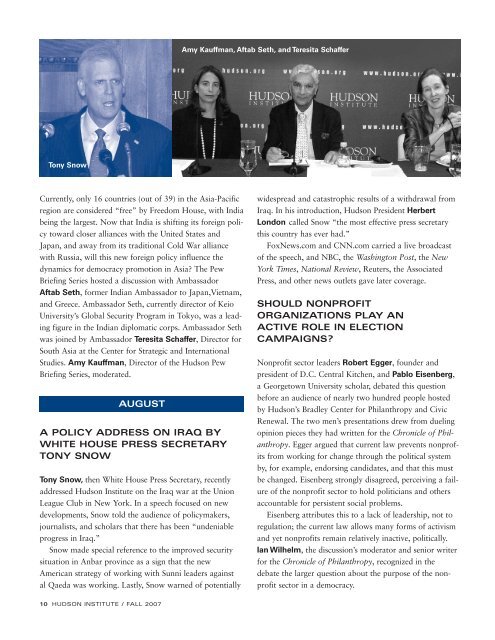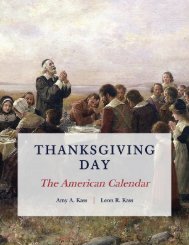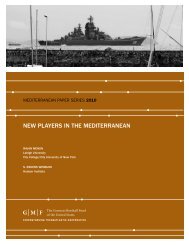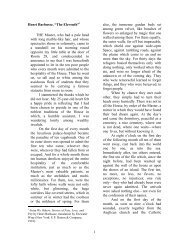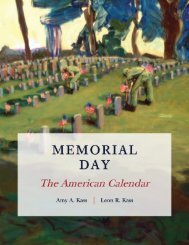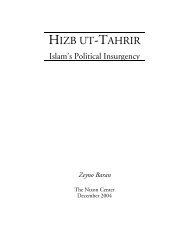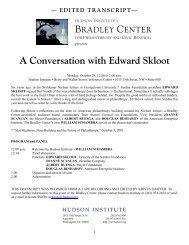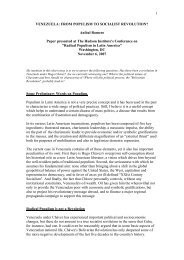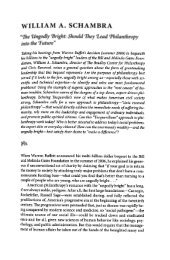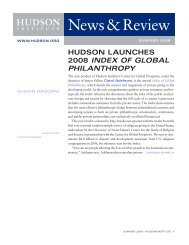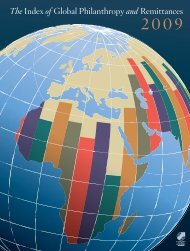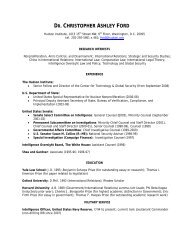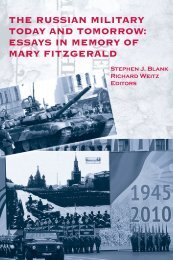You also want an ePaper? Increase the reach of your titles
YUMPU automatically turns print PDFs into web optimized ePapers that Google loves.
Amy Kauffman, Aftab Seth, and Teresita Schaffer<br />
Tony Snow<br />
Currently, only 16 countries (out of 39) in the Asia-Pacific<br />
region are considered “free” by Freedom House, with India<br />
being the largest. Now that India is shifting its foreign policy<br />
toward closer alliances with the United States and<br />
Japan, and away from its traditional Cold War alliance<br />
with Russia, will this new foreign policy influence the<br />
dynamics for democracy promotion in Asia? The Pew<br />
Briefing Series hosted a discussion with Ambassador<br />
Aftab Seth, former Indian Ambassador to Japan,Vietnam,<br />
and Greece. Ambassador Seth, currently director of Keio<br />
University’s Global Security Program in Tokyo, was a leading<br />
figure in the Indian diplomatic corps. Ambassador Seth<br />
was joined by Ambassador Teresita Schaffer, Director for<br />
South Asia at the Center for Strategic and International<br />
Studies. Amy Kauffman, Director of the <strong>Hudson</strong> Pew<br />
Briefing Series, moderated.<br />
AUGUST<br />
A POLICY ADDRESS ON IRAQ BY<br />
WHITE HOUSE PRESS SECRETARY<br />
TONY SNOW<br />
Tony Snow, then White House Press Secretary, recently<br />
addressed <strong>Hudson</strong> <strong>Institute</strong> on the Iraq war at the Union<br />
League Club in New York. In a speech focused on new<br />
developments, Snow told the audience of policymakers,<br />
journalists, and scholars that there has been “undeniable<br />
progress in Iraq.”<br />
Snow made special reference to the improved security<br />
situation in Anbar province as a sign that the new<br />
Ameri can strategy of working with Sunni leaders against<br />
al Qaeda was working. Lastly, Snow warned of potentially<br />
widespread and catastrophic results of a withdrawal from<br />
Iraq. In his introduction, <strong>Hudson</strong> President Herbert<br />
London called Snow “the most effective press secretary<br />
this country has ever had.”<br />
FoxNews.com and CNN.com carried a live broadcast<br />
of the speech, and NBC, the Washington Post, the New<br />
York Times, National Review, Reuters, the Associated<br />
Press, and other news outlets gave later coverage.<br />
SHOULD NONPROFIT<br />
ORGANIZATIONS PLAY AN<br />
ACTIVE ROLE IN ELECTION<br />
CAMPAIGNS?<br />
Nonprofit sector leaders Robert Egger, founder and<br />
president of D.C. Central Kitchen, and Pablo Eisenberg,<br />
a Georgetown University scholar, debated this question<br />
before an audience of nearly two hundred people hosted<br />
by <strong>Hudson</strong>’s Bradley Center for Philanthropy and Civic<br />
Renewal. The two men’s presentations drew from dueling<br />
opinion pieces they had written for the Chronicle of Phil -<br />
anthropy. Egger argued that current law prevents nonprofits<br />
from working for change through the political system<br />
by, for example, endorsing candidates, and that this must<br />
be changed. Eisenberg strongly disagreed, perceiving a failure<br />
of the nonprofit sector to hold politicians and others<br />
accountable for persistent social problems.<br />
Eisenberg attributes this to a lack of leadership, not to<br />
regulation; the current law allows many forms of activism<br />
and yet nonprofits remain relatively inactive, politically.<br />
Ian Wilhelm, the discussion’s moderator and senior writer<br />
for the Chronicle of Philanthropy, recognized in the<br />
debate the larger question about the purpose of the nonprofit<br />
sector in a democracy.<br />
10 HUDSON INSTITUTE / FALL 2007


